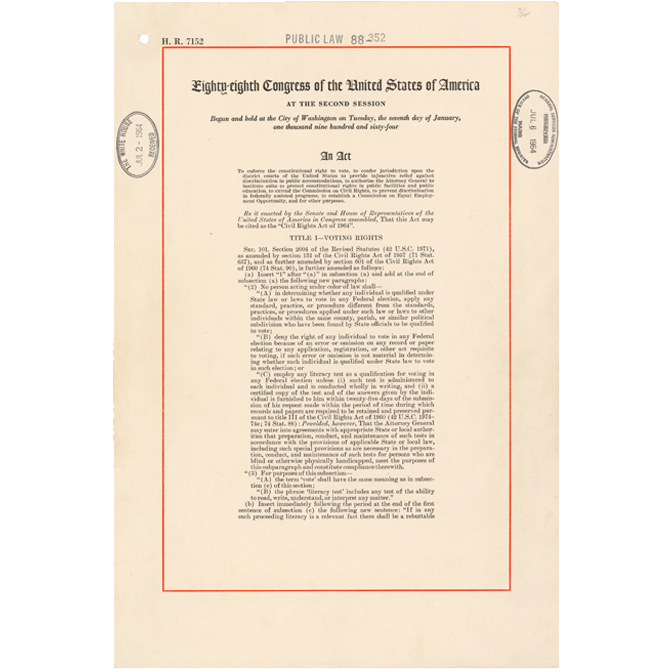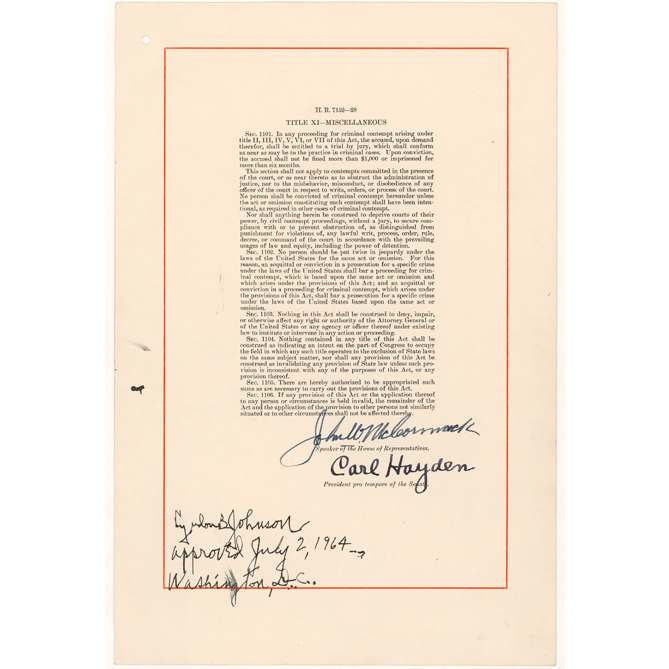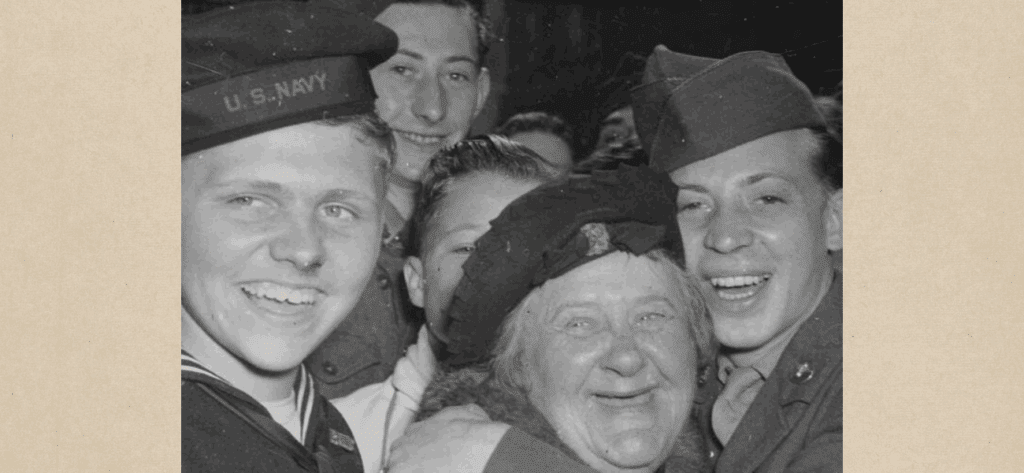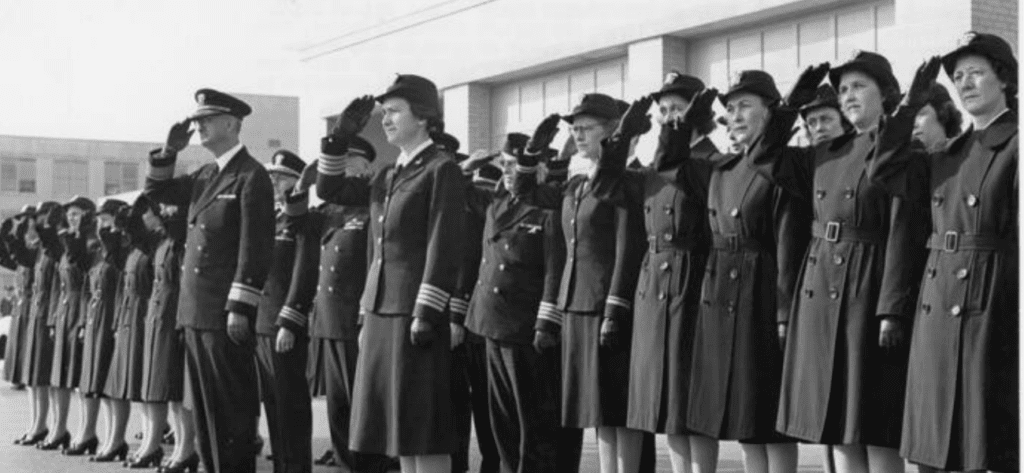In a nationally televised address on June 6, 1963, President John F. Kennedy urged the nation to take action toward guaranteeing equal treatment of every American regardless of race. Soon after, Kennedy proposed that Congress consider civil rights legislation that would address voting rights, public accommodations, school desegregation, nondiscrimination in federally assisted programs, and more.
Despite Kennedy’s assassination in November of 1963, his proposal culminated in the Civil Rights Act of 1964, signed into law by President Lyndon Johnson just a few hours after House approval. The act outlawed segregation in businesses such as theaters, restaurants, and hotels. It banned discriminatory practices in employment and ended segregation in public places such as swimming pools, libraries, and public schools.
Passage of the act was not easy. House opposition bottled up the bill in the House Rules Committee. In the Senate, opponents attempted to talk the bill to death in a filibuster. In early 1964, House supporters overcame the Rules Committee obstacle by threatening to send the bill to the floor without committee approval. The Senate filibuster was overcome through the floor leadership of Senator Hubert Humphrey of Minnesota, the considerable support of President Lyndon Johnson, and the efforts of Senate Minority Leader Everett Dirksen of Illinois, who convinced Republicans to support the bill.
One of the pens President Johnson used to sign this historic piece of legislation, along with pens used to sign 49 other pivotal acts of legislation between 1961 and 1965, which were given to Lawrence F. O’Brien, was on display in the “Making Their Mark” exhibit in the Lawrence F. O’Brien Gallery in 2014.
The images shown below are scans of the first and signature pages of this act. Download a high-resolution version of the entire act from the National Archives’ Online Public Access Database.






